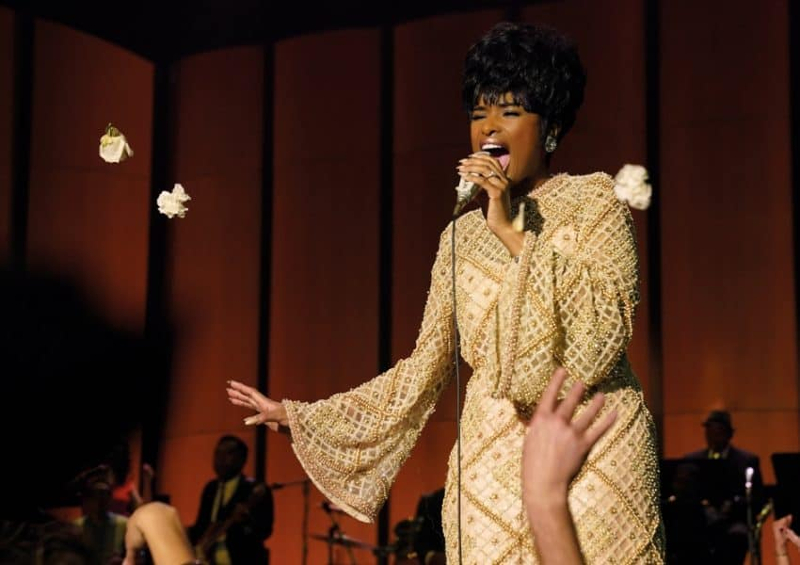Director – Liesl Tommy – 2021 – US – Cert. 12a – 145m
***
Biopic of legendary singer Aretha Franklin’s career up to and including her live gospel recording Amazing Grace – out in cinemas on Friday, September 10th
There is much to admire in this sprawling biopic of America’s legendary Queen of Soul Aretha Franklin. Let’s start with the opening scene in which 10-year-old Aretha (Skye Dakota Turner), known to friends and family as Ree, wanders wide-eyed through a grown-up party with its mysterious intrigues at the house of her pastor father C.L. Franklin (Forest Whitaker) to sing for the assembled guests, one of whom describes the child’s voice as “going on 30”. There’s a wondrous quality to this, a child walking through an adult world she barely comprehends where her stock is already rising on account of her incredible voice. We too are intrigued by the promise of this world then blown away by her voice.
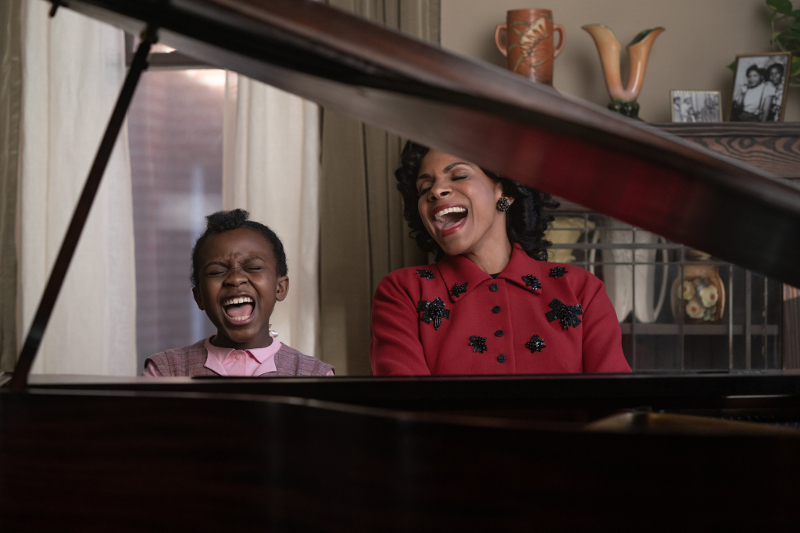
However, there is darkness in this Detroit house too: her mother Barbara (Audra McDonald) who will leave her for the last time then be announced dead in a phone call, the boy who will shut the door behind him entering her room uninvited and the resultant shame she can’t articulate, her authoritarian father who will tour her round numerous churches from age 12 and micromanage her singing career.
As a young woman still managed by her father, Ree (Jennifer Hudson) is signed to New York’s Columbia Records under John Hammond (Tate Donovan). Although she’s a hard and conscientious worker, the four resultant albums don’t really know what to do with her, casting the singer in a variety of conservative popular musical styles.
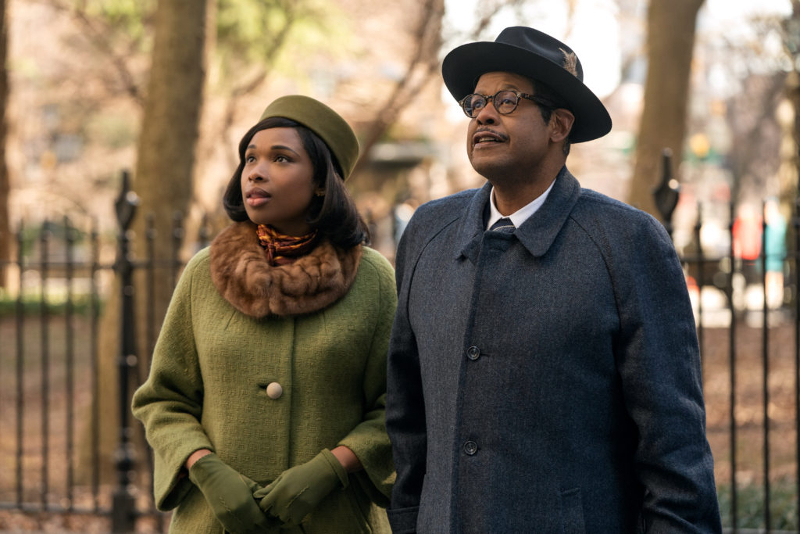
Her relationship with subsequent husband Ted White (Marlon Wayans) leads to a huge bust-up with her father who disapproves of White and his lifestyle and a prescient change of musical direction as White and producer Jerry Wexler (Marc Maron) push her towards a more radical musical style with a move to Atlantic Records and recording at Muscle Shoals, Alabama where the musicians, although not black as White expects, are much more contemporary and turn out to be exactly what she needs to make her cultural mark by recording I Never Loved A Man (The Way I loved You) which becomes her first top ten hit. The likes of Respect and You Make Me Feel (Like A Natural Woman) follow.
White is at one point seen handling bloodstained dollar bills. He is not above assaulting his wife in a hotel lift when she won’t do what he says, and eventually Aretha leaves him, falling into another relationship with her road manager Ken Cunningham (Albert Jones) and sinking into alcoholism. In 1972, she decides to record a live gospel album in a Los Angeles church. Amazing Grace becomes her highest selling album.
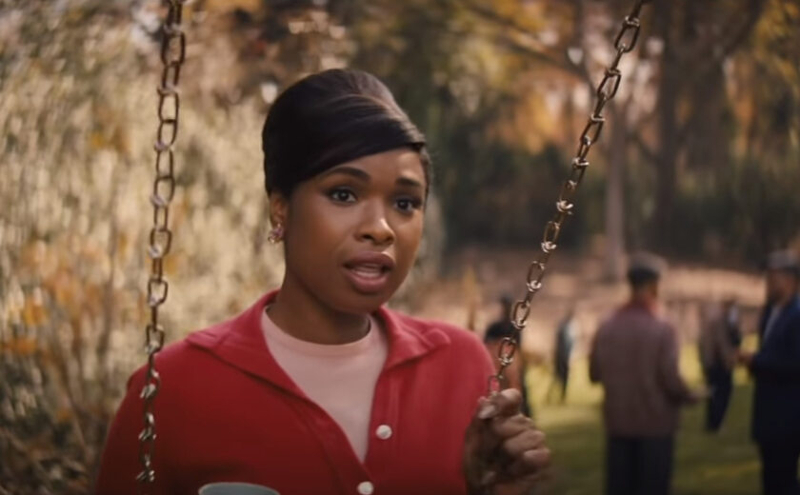
The film is packed with astonishing performances, particularly Hudson (who upstaged everyone else in the Motown-inspired Dreamgirls, Bill Condon, 2006, and won the Oscar for Best Supporting Actress as well as numerous other awards) who absolutely nails Aretha Franklin as both a singer and a human being. As too does Turner playing Aretha as a child. Whitaker is also memorable as her father. One could go down the entire cast list saying similar things, as there isn’t a bad performance here.
Moreover, Hollywood Studio movies at their best are unrivalled in production values. As well as incredible performances, this boasts art direction, production design and hair and make-up work of the highest order. Considerable attention to detail makes you really feel like you’re watching the historical time periods portrayed. The music and songs are great too, as you would hope – which is just as well, because if they hadn’t been, the movie would have been dead in the water.
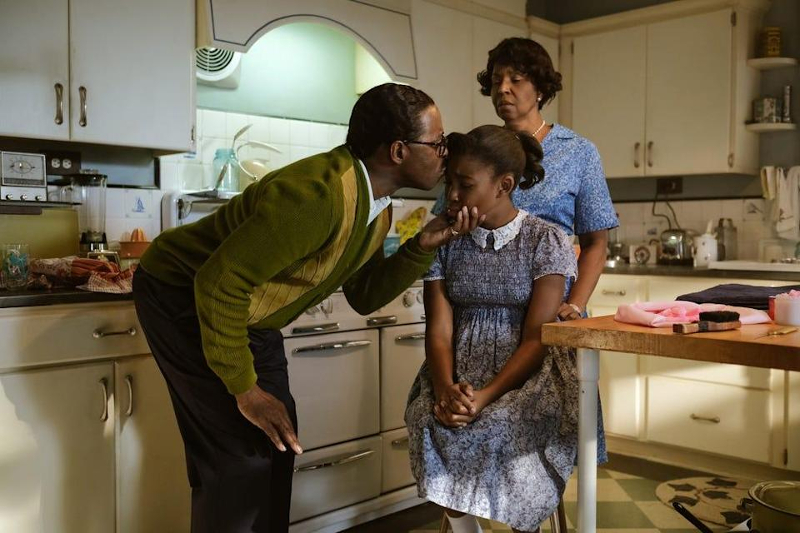
Individual scenes of the narrative are electrifying (the opening party, the Columbia Records scenes, the interaction with the Muscle Shoals studio and musicians, the Franklin family sequences, Aretha’s alcoholism). Yet in other places, the film doesn’t seem to know how to pace itself and falls back on a recurring routing of a narrative scene, a song, another narrative scene, another song, and so on – which soon gets tiring. This is more of a problem in the final hour. It’s as if the decision to include concert performances of a handful of Aretha’s best known hits has caused them to be interspersed with scenes from her life which don’t flow so well when placed back to back in a narrative.
The songs really need to help move the story on, but instead they tend to stop the show dead in its tracks. Which is not to detract from any of the concert songs here or for that matter any of the dramatic scenes interspersed with them as great sequences in their own right, they somehow just don’t come together to make a coherent whole. As a consequence, this feels a lot longer than its two and a half hours.

When it all finally comes to an end after one of the Amazing Grace gospel numbers, the plethora of captions explaining what happened next suggest that the filmmakers and / or the Studio really didn’t know how to end this picture beyond the broadest of brushstrokes. It’s a crying shame that this gets so much right in so many areas only to completely blow it in some key ones. For that reason, if I had to pick one film about Aretha Franklin it would be the documentary Amazing Grace (Sydney Pollack, Alan Elliot, 2018) rather than this biopic.
It remains impressive in many ways, though. The superb production values make it well worth seeing on a big cinema screen. Not to mention all those incredible performances, including Jennifer Hudson.
Respect is out in cinemas in the UK on Friday, September 10th.
Trailer:
